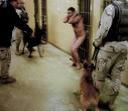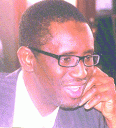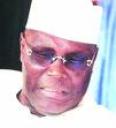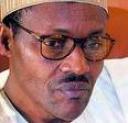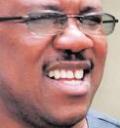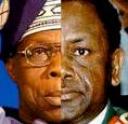Magazines in the blogosphere world
In the past decade, personal publishing has dramatically changed the way journalism is practiced, thus raising question on the future of magazines in an era of digital revolution.
The pictures were as grisly as they were enthralling. Moments after the execution of former Iraqi President Saddam Hussein on December 30, 2006, the graphic details were in the public domain. Interestingly, the ‘New Media’ beat the ‘Mainstream Media’ to what arguably was the biggest story of 2006.
Just like in the September 7, 2005 terrorist attack in
London when eyewitness camera phone photos became a major part in the media’s coverage of the bombings, an amateur video shot using a camera phone was the major source of news on Saddam’s execution. The amateur video containing low-quality footage of the entire hanging was also notable for the fact that, unlike the official footage, it included sound: witnesses could be heard taunting Saddam.
With increasing number of young people, those Rupert Murdock, a media mogul, calls “digital natives” pitching their news tent in the blogosphere world, questions have arisen as to the future of magazines.
Ever since Tim Berners-Lee, a computer scientist at the Cern particle physics laboratory in
Switzerland, invented the World Wide Web in 1989, journalism has undergone radical transformation. At the heart of this change is the unconventional media or what Dan Gillmor of the San Jose Mercury News, calls the “We Media.” The blog, a digital newswire, facilitated by the proliferation of the internet, low production and distribution costs, ease of use and really simple syndication (RSS), is the engine that drives this new and powerful push-pull publishing concept.
In the past decade since this phenomenon gained currency, the question has been consistently asked; why blogging? The attraction of personal publishing lies in its ability to change the power structures in journalism, giving yesterday’s readers the option of being today’s journalists and tomorrow’s preferred news aggregators. Teenage kids, Murdoch noted in a speech to the American Society of Newspaper Editors, on April 13, 2005, “Want news on demand, continuously updated. They want a point of view about not just what happened, but why it happened…they want to be able to use the information in a larger community.”
Blogging merges this democratisation of the media with speed of news delivery. “The central virtue of blogging, I’ve decided, is that in the proverbial agora, or online marketplace of ideas, bloggers are like Socrates on speed,” writes Chris Mooney, the 2005 winner of the Scientific America’s Science and Technology Web award. The result is that today blogs number well over 30 million worldwide, promoted by the often-free blogging service providers like Blogger and WordPress. An estimated 75,000 new blogs are created everyday, an average of one new blog a second.
Unarguably, the “We Media” comes with enormous capabilities which seem to give it an edge over the mainstream media, particularly the print version. The blogosphere, “can do lots of things better than we can currently do – including fragmentation and connectivity and community. It is wonderfully enabling, intoxicatingly democratic and exhilaratingly anarchic,” says Alan Rusbridger. Traditional printing compared to personal publishing remains an expensive process. As Shel
Israel, author of the book Naked Conversations puts it: “In the information age, the newspaper has become a cumbersome and inefficient distribution mechanism. If you want fast delivery of news, paper is a stage coach competing with jet planes.”
Is personal publishing about to consign magazines to the garbage bin of history? Robin Sloan and Matt Thompson think so. “The year is 2014, and people have access to a breadth and depth of information unimaginable in an earlier age. Everyone contributes in some way. Everyone takes part to create a living, breathing mediascape. However, the press, as you knew it, has ceased to exist. Twentieth century news organisations are an afterthought, a lonely remnant of a not too distant past,” the two
California bloggers proclaim.
But many industry pundits disagree. While acknowledging the challenges posed by blogosphere, the preponderant opinion is that strong symbiotic relationships have evolved between blogging and journalism, with the former acting as both a check on journalistic inaccuracy and source of opinion on which journalists increasingly rely.
Personal publishing carries its own baggage, which remain the strength of the print media. Unlike blogging, traditional print media is still the custodian of the core values of journalism – accuracy, objectivity, reliability and pursuit of truth. Consumers of journalism don’t seem to be in a hurry to sacrifice these values on the alter of speed. “There are snakes in this new media ‘Garden of Eden,” writes Patrick Baltatzis. “Rumours seem to have a natural habitat in the blog world, as well as ranting and personal opinions. The issues of trust and reliability are difficult.”
Realising however the challenges posed by the new era, magazines are changing the ways they had hitherto approached journalism. Not only have they gone online, establishing their own websites, many in a bid to cultivate new audiences have resorted to blogging some beats or sections that ordinarily would have run in print, thereby, using fewer resources and maximising the use of journalists.
They do this by either encouraging their staff to blog or hiring the services of professional bloggers. Going online has also enabled them to streamline their operations, changing the way they write and edit stories and interacting more with the audience. Besides, in 2005, Bill Gates predicted that the Internet would attract $30 billion in advertising revenue annually within the next five years. Realising that their traditional revenue sources are increasingly being eroded as advertising increasingly migrates to the internet, magazines have also gone online in order to put their hand in the online advertising pie.
Where will all these ultimately leave magazines in the 21st century? Only time will tell. But as Rusbridger, noted: “The newspaper of the future may or may not look like a newspaper – it could be printed on paper, on a screen or exist in electronic ink on a sheet of plastic. But it will behave like a newspaper.” Ditto for magazines! (981 words) Bibliography
Baltatzis, P., Is Blogging Innovating Journalism? Innovation Journalism, Vol.3 No.4, May 29, 2006
Bauder, D., Saddam execution images shown on TV, Web, International Business Times, January 2, 2007 http://www.ibtimes.com/articles/20070102/Saddam-web-tv-htm
Hammersley, B., Media: New Media: Time to blog on, The Guardian, May 20, 2002
Israel, S., Merging Newspapers and Blogshttp://redcouch.typepad.com, March 9, 2006
Mooney, C., How blogging changed journalism – almosthttp://www.Post-Gazette.com, February 2, 2003
Naughton, J., What’s the secret of blogging? It’s personal, Guardian Unlimited, July 23, 2006
Paulman, K., Do you trust blogs? The Spokesman Review, March 9, 2006 http://www.spokesmanreview.com
Rusbridger, A., Is it all over for bloggers?http://www.MediaGuardian.co.uk, June 12, 2006
Silver, J., It’s the thought that counts, The Guardian, March 6 2006
Sloan, R., and Thompson, M., Media: Its 2014 – We’re all journalists now, The Observer, June 26, 2005
International Business Times, 02-01-2007
Innovation Journalism, Vol. 3 No. 4, 29-05-2006
Ibid
www.MediaGuardian.co.uk, 14-04-2005
www.Post-Gazette.com, 02-02-2003
Sunday Guardian, 03-07-2006
www.MediaGuardian.co.uk, 12-06-2006
http://redcouch.typad.com
The Observer, 26-06-2005
Guardian Unlimited, 23-07-2006
Op. Cit.
http://www.MediaGuardian.co.uk, 14-04-2005
Op Cit
